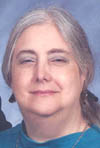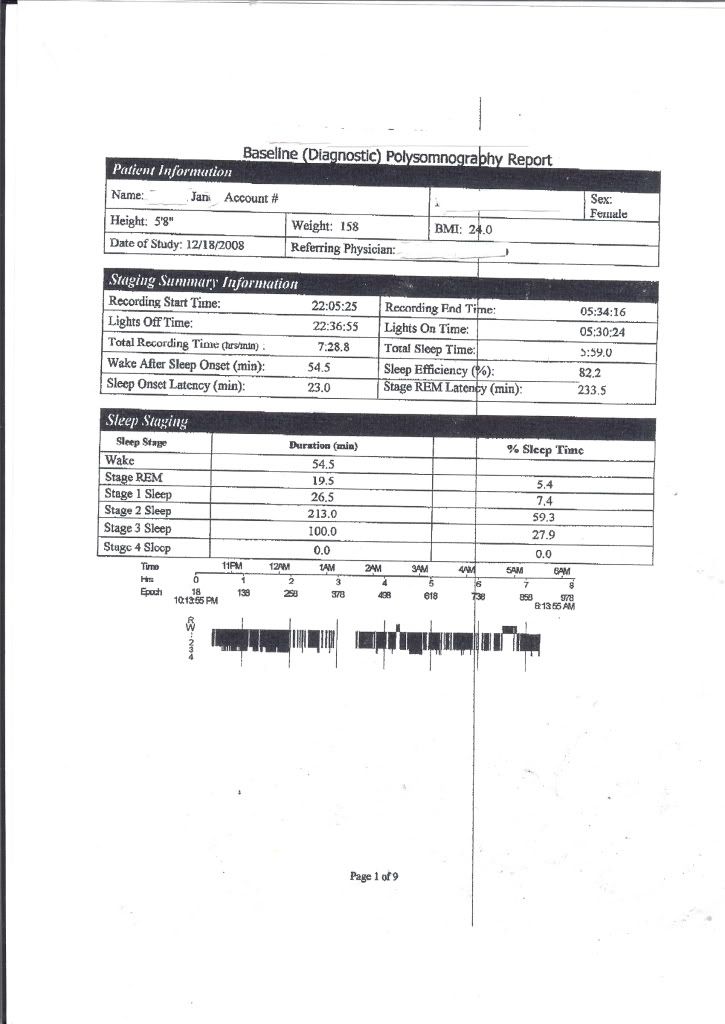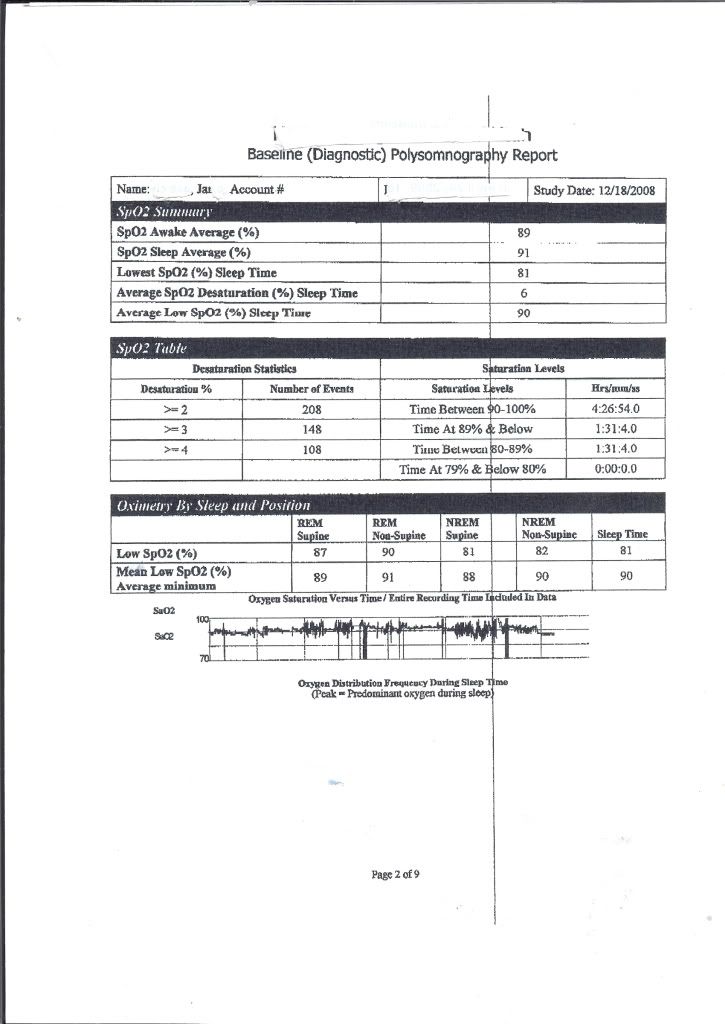SaltLakeJan wrote: I asked my DH's cardiologist if I needed a Halter Monitor after my last treadmill stress test.(I think it was in late fall 2008) He told me I "passed" & didn't need a Halter at this time. When DH took his stress test in about March of this year, I showed him the heart figures from the PSG 12-2008. His comment was something like "I assure you those figures are incorrect. They just grabbed them out of the air." In 2004 he told me I had some heart enlargement, by early 2005, he said "much improved."
Then I noticed the similaries of the heart rate figures on 4-2000. After I have the pending sleep test 6-9-2009. I will ask my internist.
Well the 2000 and 2008 HR similarities struck me as well. I also question the validity of the 2008 study. More importantly Muffy, who professionally recognizes good NPSG methodology from questionable, doesn't like some of what she sees.
That alone would make me want to schedule the next sleep study sooner rather than later.
SaltLakeJan wrote: took Heart Rate Summary to Cardiologist (I see him for yearly stress test) He sd heart rates on 12-2008 sleep tests not accurate based on his stress test figures for about 5 years.)
The 2008 data may very well have been inaccurate, because of that missing lead. That missing lead may have contributed to artifacts; and/or it may have contributed to the clinician(s) pulling corrupted HR samples for the summary as your cardiologist suggests.
But then again, in light of the 2000 HR summary, that 2008 HR data may not have been that far off base.
And that gets me to wondering if your cardiologist unrealistically expects sleep-study EKG traces, that can be nocturnally pathological, necessarily imply "bad data collection" when they happen to deviate from normalized EKG traces by day. I hope he understands that for certain SDB patients, those two sets of EKG traces can legitimately be as radically different as day and night---with significant HR and HRV pathology sometimes being reflected
only in the nocturnal EKG traces.
And I also think it's worth noting that both hypercapnic and hypocapnic varieties of Complex Sleep Disordered Breathing do not always manifest uniformly from night to night. Rather, the severity of those symptomatic expressions can be inherently episodic in some cases---manifesting in "fits and spurts" so to speak.
PSG titration study wrote:The most striking finding is the difference in natures of apneas. In Previous study, she had predominance of obstructive apnea. In this study, she had central apneas or hpopneas up to 84 events per hr. With Occasional Obstructive apneas up to 16 per hr. Respiratory distress 81 events per hr.
That strongly suggests a Complex Sleep Disordered Breathing (CSDB/CompSAS) issue as Muffy pointed out earlier. If so, a question remains regarding just how episodic or consistent that central dysregulation happens to be, from one night or month to the next. And, of course, biological adaptation or long-term homeostasis may have gradually lessened your initial adverse reaction to CPAP pressure as well.














